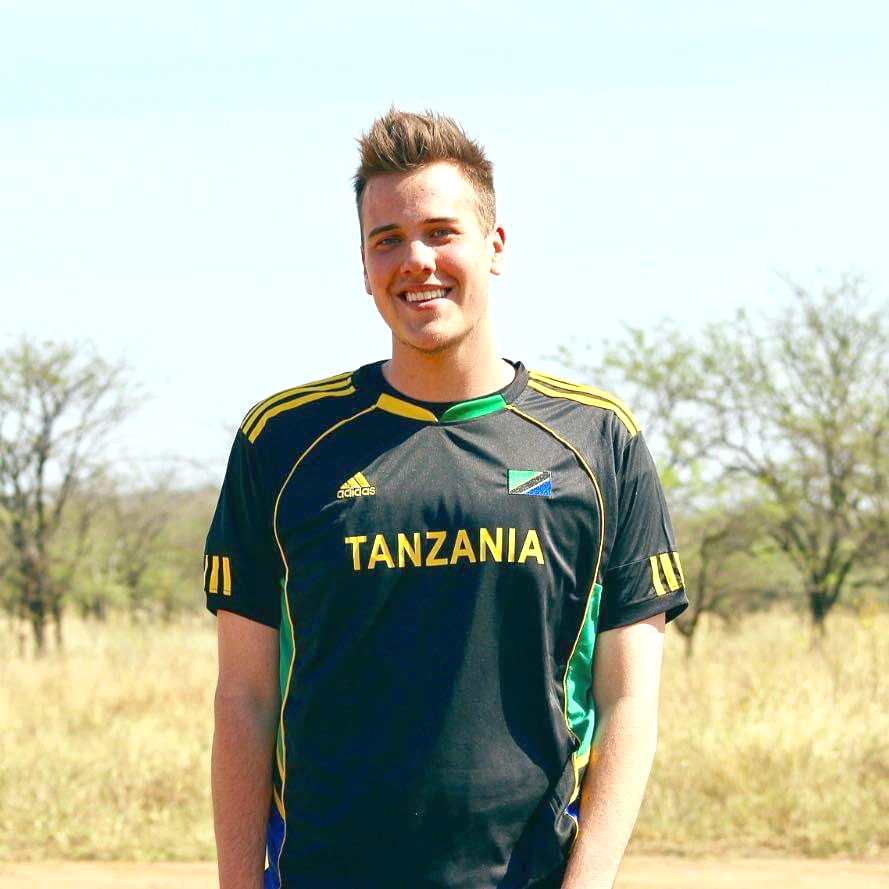Two University of Mississippi seniors are headed to China in September with the opportunity to spend two years studying in Beijing with scholars from around the world after being named UM’s first-ever Yenching fellows.

Lennis Barlow, from Madison, and Matthew Travers, from St. Louis, are both majoring in international studies and Chinese and are members of the Sally McDonnell Barksdale Honors College. They worked with the university’s Office of National Scholarship Advisement to earn the fellowship, which brings together 100 scholars from 30 countries and regions.
Having two of the 100 students represented is impressive for the university, said Vivian Ibrahim, associate professor of history and director of the Office of National Scholarship Advisement at the Honors College. It’s especially notable, considering that only 70 of them came from outside China.
“I’m really excited about these two because they’re our first two ever Yenching Scholars from the university, so this is a big deal,” Ibrahim said. “They’re taking about 100 students from universities every year, about 70 are international.
“In terms of intake this year, we’ve done really well. That’s a credit to both of them and the hard work they’ve put into this application.”
The Yenching fellowship brings together young people who have demonstrated a talent for leadership and innovation in an interdisciplinary master’s program. The Yenching Academy of Peking University was established in 2014 with the goal of building bridges between China and the rest of the world through an interdisciplinary master’s program in China studies.
The academy provides full fellowships for two years at Peking University.
At Yenching, they are immersed in an intensive learning environment where they can explore China and its role in the world – past, present and future. The academy says its goal is “to shape new generations of global citizens with a nuanced understanding of China.”
Barlow, who is also minoring in environmental studies, plans to pursue a master’s degree in China studies with a focus on environmental policies.
The president of Real Food Rebels Student Organization, Barlow has closely worked with the Associated Student Body and the Office of Sustainability to coordinate campus efforts to create a more energy-efficient, recycling-friendly and inclusive campus environment.
“Through the Yenching Academy, I will be able to further my current thesis research on Chinese water policy and environmental discourses while also continuing to develop my language skills,” Barlow said. “I am beyond excited for the opportunity to work alongside Yenching’s community of global scholars.”

Travers minors in Swahili. He is a Stamps Scholar and the recipient of the Boren, Critical Languages and NSLI-Y scholarships. As a Yenching fellow, Travers plans to study politics and international relations, focusing on China-Tanzania relations.
“I plan to research China’s language policies and soft power in Swahili-speaking East African countries,” Travers said. “I hope to use my proficiency in Chinese and Swahili to learn more about China’s influence in East Africa through the Belt and Road Initiative and Confucius Institute.”
But there’s also a lot to see when he isn’t studying, Travers said.
“Beijing is my favorite place that I’ve ever lived,” Travers said. “There’s somewhat of a saying that it is an ancient, but also a young city. I think that holds true if you walk around it.
“It’s built in concentric rings around the ‘Forbidden City,’ and the closer you get to the ‘Forbidden City,’ the older the city looks.”
Travers describes the city’s skyscrapers and mix of ancient structures standing side by side with new businesses as something that fascinated him when he spent a gap year studying in China before coming to Ole Miss.
He’s looking forward to walking those streets again.
“Within the ancient roofs and around the city parks and the old-styled neighborhoods, some of them have been refurbished and turned into coffee shops and stores,” Travers said. “It’s kind of like a maze, and you have to go find things on your own, but I’m really excited to explore the old China feel of that, but also have access to China’s Silicon Valley, the central business district and the more modern areas.
“It’s an environment that feels very traditionally Chinese, but also it’s very modern. It’s just beautiful to walk around and explore.”
Barlow said she studied abroad in Beijing while at Ole Miss and is looking forward to going back for two full years as part of the Yenching fellowship. The program includes research trips to other parts of China, and she’s looking forward to another chance to explore the country.
It’s also the draw of learning with so many international students in China, she said.
“We’ll be learning with a lot of people from all over the globe,” Barlow said. “That’s one of the coolest parts, that so many different nationalities are represented; it’s not just the Chinese students who will be with us.”
Ibrahim agreed that the diverse nature of the fellows is important. She also believes students will make many important connections there, which will serve them well, no matter where their careers take them.
“They’ll have connections they can draw upon later in a global fashion, and that’s the most amazing part of this – these global connections,” Ibrahim said. “Who knows where you’ll be in 25 years, but you will have these people you studied with through Yenching, and you can get their take on an issue or on ‘situation X.’
“That’s the most exciting part of this opportunity.”
To learn more about the Yenching fellowship and how to be a competitive applicant in 2022, contact Ibrahim at vibrahim@olemiss.edu.
By Michael Newsom

Recent Comments